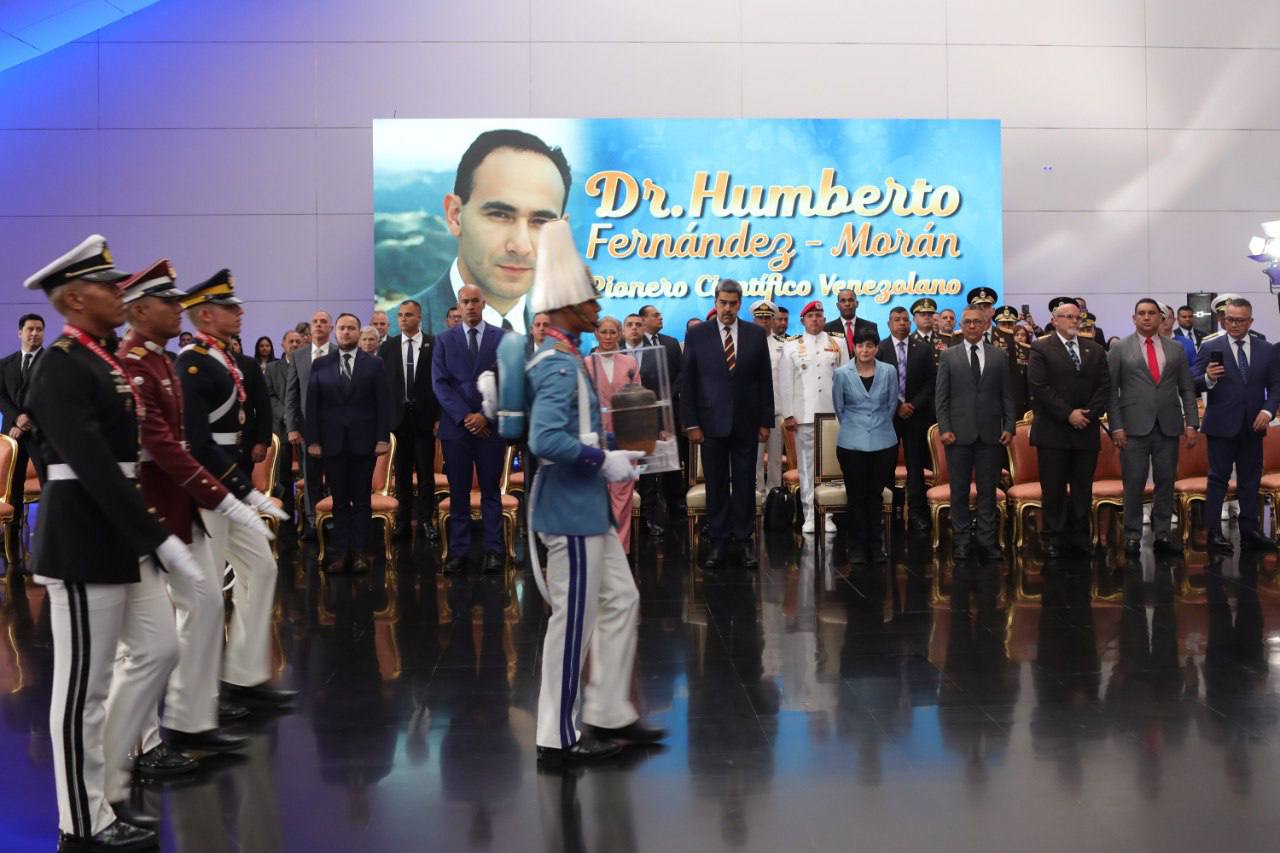The mortal remains of Venezuelan scientist Dr. Humberto Fernández-Morán have rested in the National Pantheon in Caracas since March 17.
The President of Venezuela, Nicolás Maduro, accompanied the entombment of Fernández-Morán, honoring the legacy and memory of the distinguished Venezuelan scientist, 26 years after his passing.
The Head of State emphasized the importance of recognizing the life and work of this illustrious Venezuelan, calling on future generations in the country and around the world to learn about his contributions as part of the reaffirmation of Venezuela’s scientific heritage.
“This is a highly significant moment in our ongoing history. I want to extend my greetings to the family of this hero of science and to the noble people of Zulia, who gave birth to such a brilliant mind,” the President remarked.
A legacy of science for the world
The scientist’s remains were exhumed from El Cuadrado Cemetery in the state of Zulia and were accompanied by representatives of Venezuela’s scientific and technological community in a massive procession as they departed the site.
Dr. Fernández-Morán made fundamental contributions to scientific progress, among which the diamond scalpel stands out—a revolutionary invention that transformed surgical techniques and earned him the Vovain Prize in recognition of his groundbreaking work.
His other notable achievements include the diamond knife, the cryo-electron microscope, the cryo-specimen holder, cryoultramicrotomy, and low-temperature preparation techniques, among other innovations.
Dr. Fernández-Morán also founded and directed the Venezuelan Institute for Scientific Research (IVIC in Spanish), contributed to NASA’s Apollo 11 project, served as a full professor of Biophysics at the University of Chicago, and was a lifetime professor in the Division of Biological Sciences and the Pritzker School of Medicine at the University of Chicago.
